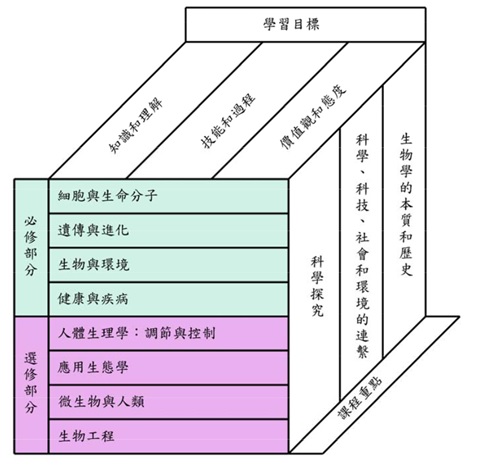生物課程是中一至中三科學科課程的延續。基於學生已有的知識及日常生活的經驗,本課程涵蓋生物學的主要課題,並強調生物學與社會、科技和環境議題的關係。課程架構由三個互相聯繫的部分組成:學習目標、課程重點,以及必修和選修部分。下圖展示各個部分的關係。

本課程分為必修和選修兩個部分。必修部分涵蓋的內容有助學生掌握基本知識,理解生物學原理及概念,以及科學過程技能。必修部分共分四個課題 – 細胞與生命分子、遺傳與進化、生物與環境,以及健康與疾病。
選修部分是為照顧學生的不同興趣、能力和需要而設計的,旨在讓學生對必修部分的某些課題有較深入的理解,應用基本知識和概念,或對某些範圍作延伸學習。選修部分共分四個課題 – 人體生理學:調節與控制、應用生態學、微生物與人類,以及生物工程。學生只須選修其中兩個課題。
*輯錄自《科學教育學習領域 – 生物課程及評估指引》